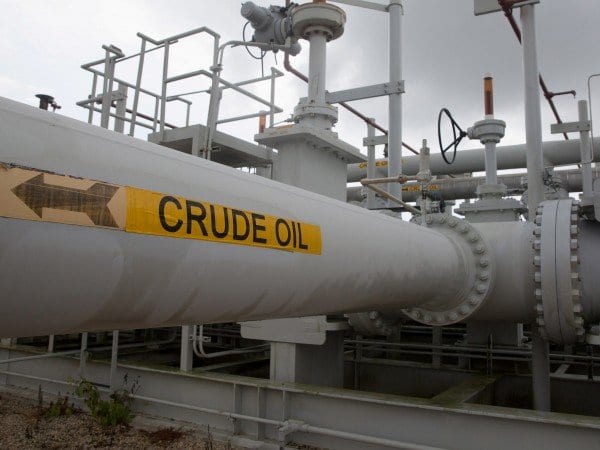(The Guardian) The price of oil has hit a 30-month high after the owner of a major North Sea pipeline said it could be shut for as long as three weeks.
The price of a barrel of Brent crude has risen to $65.47, a level not seen since June 2015, having hovered around the $62-$64 range since Opec and Russia said they would extend production curbs. Wholesale gas prices have increased by 5.8%.
Ineos said on Monday that its Forties pipeline system, which carries about 40% of UK oil and gas, would be closed after a crack was discovered during routine maintenance.
Tom Crotty, a director at Ineos, said the biggest impact so far was the financial one on oil and gasfields that use the 235-mile pipeline. “It’s very expensive for us and our shippers. That’s where the real hit is here. We are losing a lot of money on a daily basis,” he told Bloomberg TV.
Crotty would not put a specific figure on the cost. But he said the repairs were a “force majeure situation”, an unforeseeable event. He said that within the next two to three days, Ineos should know if the pipeline will reopen in a fortnight or as long as three weeks.
The company only took ownership of the pipeline system on 31 October after paying £200m to BP. Crotty said it was impossible to say whether the crack had occurred while under BP’s ownership or Ineos’s, but it could have happened under either .
“This is unfortunately for us, given our very recent ownership of the line, a very significant issue to tackle right up front,” he said. “We are perfectly able to manage the situation … it’s happened on our watch.”
He said the nature of the crack, which has widened from 106mm to 155mm after first being discovered last week, meant that it was not possible to simply fit a sleeve over the pipeline without stopping the flow.
“The problem with this crack is it has propagated,” he said, meaning it could not be guaranteed that the crack would not extend beneath the sleeve, which he likened to a bicycle tyre repair patch.
For the oil and gas producers who own the fields and use the pipeline system to get their fuel back to the mainland, there is no alternative route. However, the refineries that use the oil and gas, such as the Grangemouth refinery owned by Ineos, will be able to arrange alternative, more expensive supplies to come in by ship.



